Premium Only Content
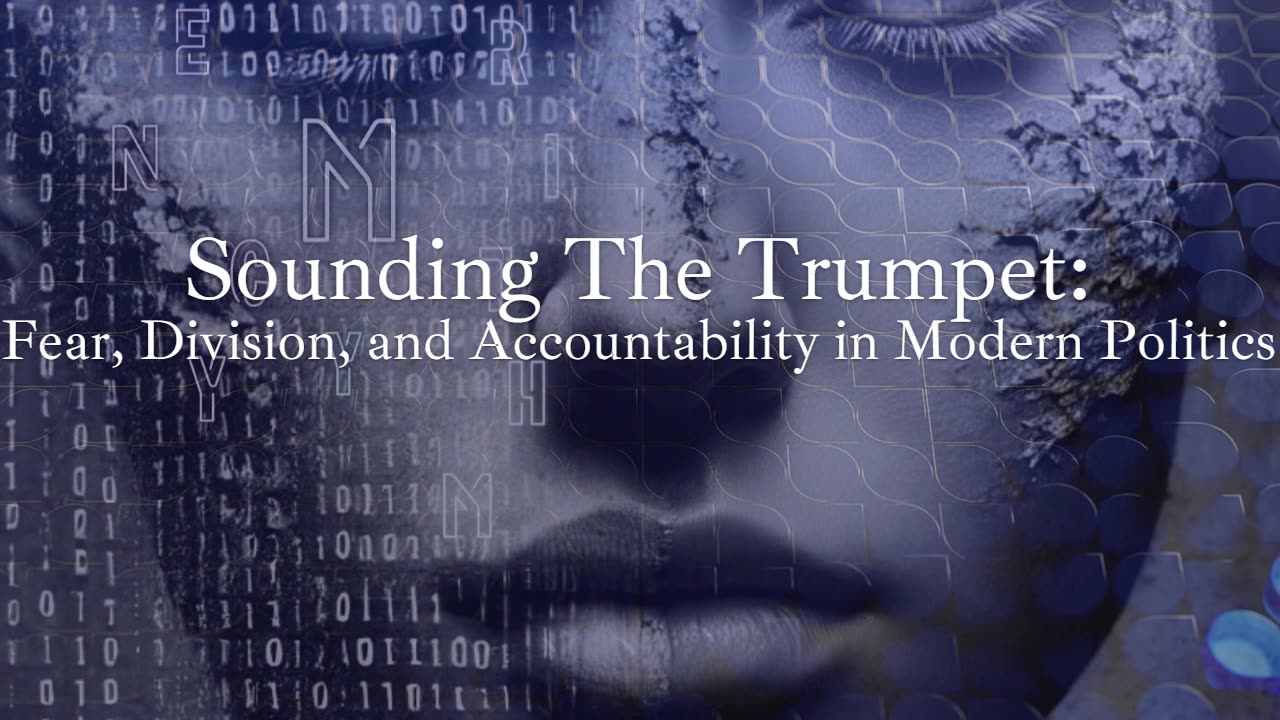
Episode 5: Sounding the Trumpet: Fear, Division, and Accountability in Modern Politics
Sounding the Trumpet: Fear, Division, and Accountability in Modern Politics
Briefing Document Date: November 29, 2024
1. Political Rhetoric and Fearmongering
Key Insights:
Political rhetoric often fuels fear, division, and hysteria, with public figures, media personalities, and politicians using emotionally charged language to mobilize supporters or discredit opponents. This can escalate political violence and mistrust.
Nancy Pelosi's statements about ensuring Trump never returns to the White House exemplify the intense political opposition driving division.
Similarly, rhetoric from Trump opponents, including comparisons to Hitler and authoritarianism, heightens polarization and inflames tensions.
Source:
AP News: Pelosi's Statements on Trump
New York Post: Analysis of Political Rhetoric
2. Celebrity Influence on Political Discourse
Key Insights:
Celebrities often amplify political narratives, with figures like Oprah Winfrey, Jennifer Lopez, and Rosie O'Donnell making statements that some interpret as fearmongering. While they aim to inspire civic engagement, their rhetoric can be divisive.
Example: Oprah’s assertion that failure to elect Kamala Harris could mean the end of voting rights sparked criticism for exaggerating risks to democracy.
Source:
Washington Examiner: Oprah's Political Statements
EconoTimes: Celebrity Political Influence
3. Kamala Harris and Accusations of Authoritarianism
Key Insights:
Vice President Harris has faced criticism for policies perceived as overly punitive or authoritarian, such as her truancy laws as California Attorney General. Opponents argue that some of her stances, including strict gun control measures, align with authoritarian tendencies.
Harris's rhetoric on misinformation and hate speech has also raised free speech concerns.
Source:
Politifact: Fact-Check on Harris's Gun Policy
FactCheck.org: Analysis of Harris’s Truancy Laws
4. Shadow Government and Influence of Wealth
Key Insights:
The role of wealthy donors, lobbying firms, and corporations in shaping policy raises concerns about a "shadow government" or undue influence. Examples include Super PACs and lobbying efforts by industries like Big Pharma and tech.
Foreign actors, such as Russia and China, also influence U.S. politics through cyberattacks, propaganda, and financial investments.
Source:
The Atlantic: Dark Money in Politics
Vox: Shadow Government Theories
5. Free Speech Concerns
Key Insights:
Discussions about regulating misinformation and hate speech spark debates about balancing free speech with protecting democratic processes.
Kamala Harris and Tim Walz have both faced criticism for comments perceived as limiting free speech to combat harmful narratives.
Source:
New York Times: Free Speech vs. Misinformation
CNN: Harris and Walz’s Statements on Free Speech
6. Political Attacks and Violence
Key Insights:
Politically motivated violence has targeted both conservatives and liberals, with incidents ranging from bomb threats against Democratic lawmakers to physical assaults on Trump supporters.
Example: Thanksgiving bomb threats against Connecticut Democrats highlight the growing dangers faced by public officials across the political spectrum.
Source:
AP News: Political Violence Reports
Reuters: Election-Related Violence Analysis
7. Global Appreciation for American Music
Key Insights:
American music has a strong global following, with countries like the UK, Japan, Germany, and Brazil showing significant appreciation. Genres like pop, jazz, and hip-hop have cultural influence, often inspiring local adaptations and collaborations.
Source:
Billboard: American Music's Global Reach
Rolling Stone: Cultural Influence of U.S. Music
8. The Role of Media in Shaping Narratives
Key Insights:
Media outlets significantly influence public opinion, often through biased reporting or selective framing of events. Fox News, for instance, has focused on attacks against Trump supporters, while other outlets emphasize violence against Democrats, reflecting partisan divides.
Source:
Politico: Media's Role in Polarization
The Guardian: Analysis of Media Bias
Conclusion
Today’s discussion highlights the interconnectedness of political rhetoric, media influence, celebrity impact, and societal tensions. Addressing these challenges requires transparency, accountability, and critical media consumption. The analysis underscores the need for constructive dialogue to bridge divisions and restore trust in democratic institutions.
-
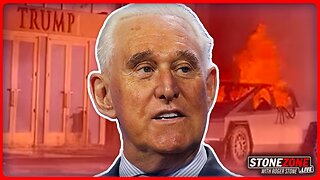 LIVE
LIVE
The StoneZONE with Roger Stone
2 hours agoAfter Years of Targeting Trump, FBI and DOJ are Unprepared to Stop Terror Attacks | The StoneZONE
1,599 watching -
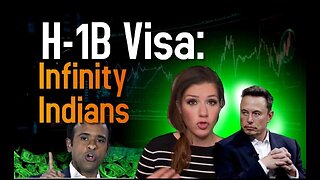 LIVE
LIVE
Leonardaisfunny
38 minutes agoH-1b Visas: Infinity Indians
489 watching -
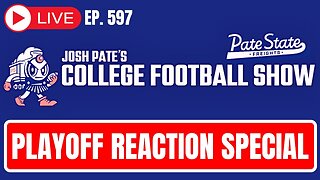 LIVE
LIVE
Josh Pate's College Football Show
5 hours ago $0.07 earnedPlayoff Reaction Special: Ohio State Owns Oregon | Texas Survives | UGA vs Notre Dame Takeaways
127 watching -
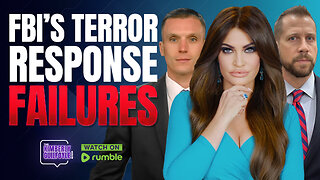 58:04
58:04
Kimberly Guilfoyle
5 hours agoFBI's Terror Response Failures, Live with Steve Friend & Kyle Seraphin | Ep. 185
76.9K35 -
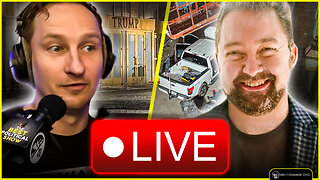 2:15:01
2:15:01
WeAreChange
5 hours agoMassive Developments In Vegas Investigation! UNREAL DETONATION, Shocking Details Emerge!
76.1K19 -
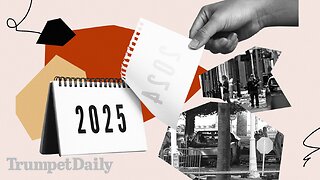 54:02
54:02
LFA TV
12 hours ago2025 Is Off to a Violent Start | TRUMPET DAILY 1.2.25 7pm
18K1 -
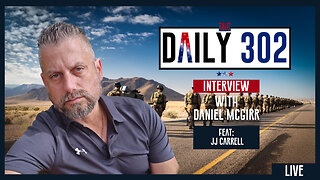 59:27
59:27
theDaily302
11 hours agoThe Daily 302- JJ Carrell
20.3K2 -
 2:57
2:57
EvenOut
1 day ago $1.28 earnedTHE TELEPORTING PORTA POTTY TWIN RPANK!
23K -
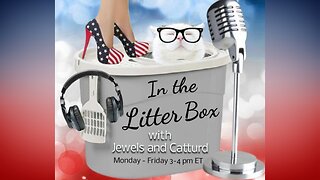 1:02:55
1:02:55
In The Litter Box w/ Jewels & Catturd
1 day agoAmerica Is Under Attack! | In the Litter Box w/ Jewels & Catturd – Ep. 711 – 1/02/2025
88.1K111 -
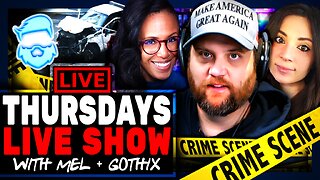 1:45:25
1:45:25
The Quartering
8 hours agoHuge Update In Cybertruck Attack & Dark New Details From New Orleans Attacker & More!
121K60